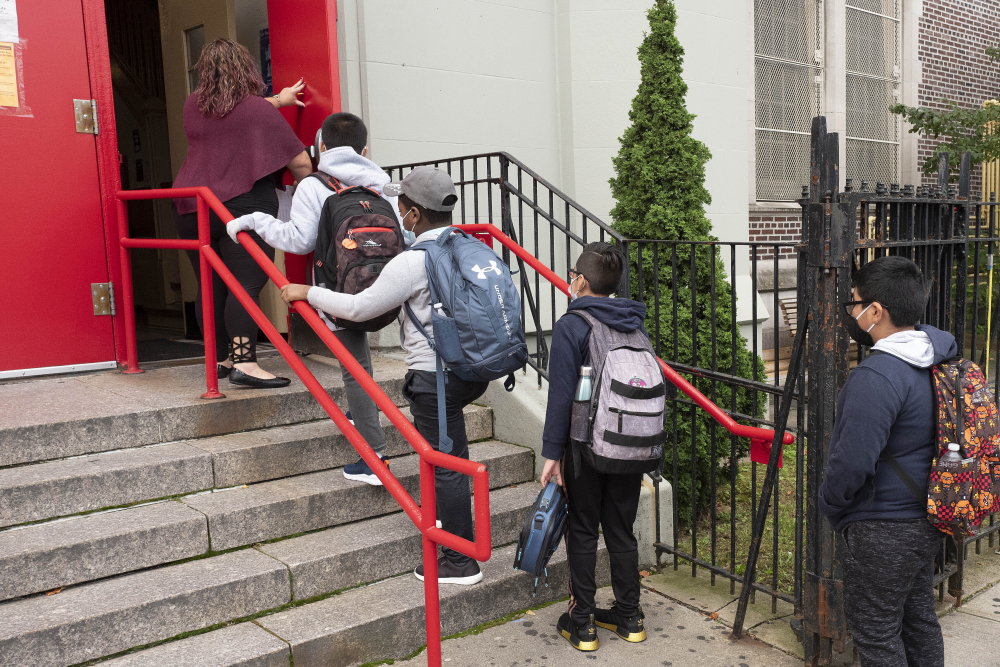If you grew up in a household where attending school daily was a given and missing classes was unheard of except for emergencies or illness, it’s natural to have negative assumptions about parents whose children are consistently absent.
In Maine, there has been a significant increase in student absenteeism, especially post-pandemic. Educators emphasize that this trend is not primarily due to parental neglect but rather a reflection of the challenges faced by families lacking essential resources, making regular school attendance a struggle.
To address chronic absenteeism, schools have implemented innovative programs to support families facing obstacles that hinder their children’s daily school attendance.
While efforts to strengthen the partnership between schools and families are commendable, tackling a problem of this magnitude requires a more systemic approach beyond individual cases and cannot be solely entrusted to schools.
The root cause of high student absenteeism, often linked to poverty, presents a complex challenge. It is not merely a result of negligent parenting but a consequence of economic hardship, forcing individuals into unfavorable circumstances.
Persistent Challenges
Last year, 27.3% of K-12 students in Maine missed more than 10% of the academic year, a slight decrease from the previous year’s 31.5%. Before the pandemic, the absenteeism rate stood at 16.8%, indicating an existing issue. Notably, economically disadvantaged students are twice as likely to be affected by chronic absenteeism compared to their more affluent peers.
Educators and school administrators are well aware of the struggles faced by these families on a daily basis. Children who frequently miss school often come from challenging home environments where they may have caregiving responsibilities, part-time jobs, or deal with unaddressed health issues. Additionally, some families may be grappling with homelessness, constantly seeking shelter and stability.
When basic necessities like food, shelter, and healthcare are uncertain, attending school becomes a secondary concern amidst the daily battle for survival. Factors such as unreliable transportation and housing instability further exacerbate the situation, sometimes making school attendance an insurmountable challenge.
Schools have taken proactive steps to engage with these families, offering support and assistance. While this outreach is crucial and appreciated, a more effective strategy would involve addressing the underlying poverty issues directly, rather than just the symptoms.
Addressing the Core Issue
The expansion of the child tax credit during the pandemic lifted millions of children out of poverty temporarily. However, the subsequent repeal of this expanded credit in 2021 resulted in a sharp increase in child poverty rates, from 5.2% to 12.4%.
It is not surprising that more families are now struggling to make ends meet and ensure regular school attendance for their children. A substantial and targeted child tax credit could significantly alleviate this problem, along with other challenges stemming from pervasive poverty.
While Maine has introduced an enhanced state-level credit, its impact is limited. Federal initiatives, such as a robust child tax credit, could offer substantial relief to the most vulnerable families. Despite discussions in Congress regarding an expanded credit, the proposed measures fall short compared to previous successful initiatives, and bipartisan support remains elusive.
Three years ago, a single decision by Congress halved the child poverty rate—an undeniable achievement. This should have signaled a broader acknowledgment that poverty, not the individuals experiencing it, is the fundamental issue. Even a modest investment in supporting these families can yield substantial benefits.
Instead, recent policy changes have withdrawn vital support from millions of families, pushing them further into financial hardship. It is imperative to recognize that by cutting off this lifeline, we are contributing to the very crisis we aim to resolve.

